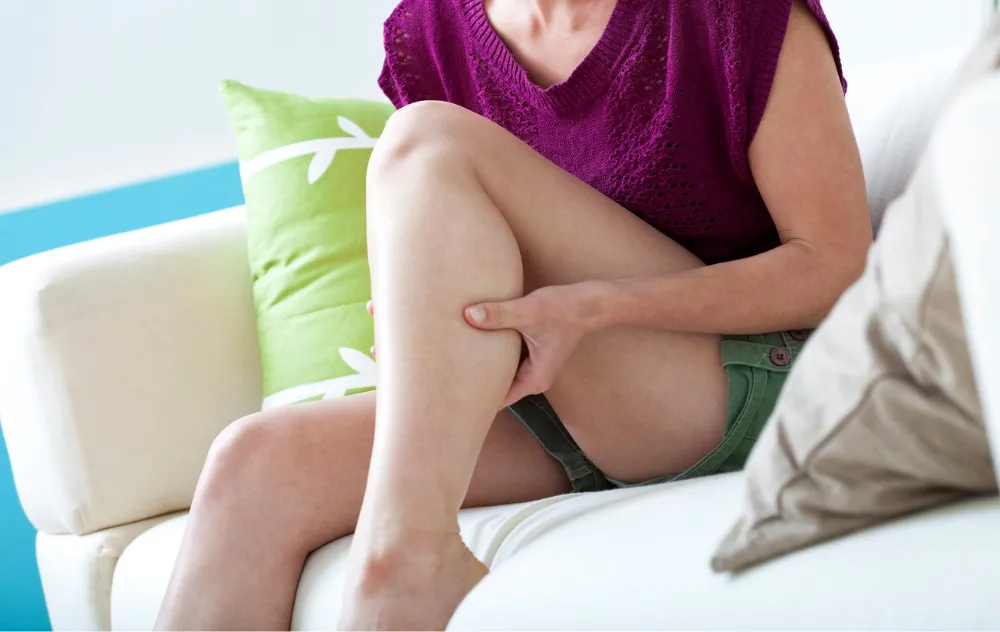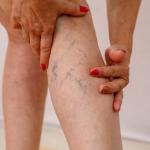
You may assume that venous diseases are only a burden of the elderly, but varicose veins can affect you even as a young adult. While both men and women can develop varicose veins, women are more likely to develop the condition.
Varicose veins are twisted, enlarged veins that occur as a result of weak, damaged, or malfunctioning vein valves. Distinguished by their dark purple or bluish hue, varicose veins may be an indication of vein disease. Varicose veins typically occur in the legs due to pressure placed on the veins during walking and other physical activities. However, hormonal imbalances in estrogen and progesterone may influence whether a person will develop varicose veins and increase the likelihood during certain life stages.
Hormones and vein disease have a connection; however, the relationship between hormones and varicose veins is complex, and the link between the two remains unclear. Nevertheless, it is important to understand how hormonal changes can cause varicose veins to appear throughout different stages of your life.
Varicose Veins and Genetics
Several risk factors exist for vein disease and varicose veins. Genetics play a major role in determining who will develop this condition. Recent research has found that height may be a possible risk factor, which is also partially determined by genetics. Scientists utilized machine learning to detect traditional risk factors for varicose veins while also discovering height as a new factor. While more research is required to understand the role between varicose veins and genetics, it is apparent that when a family member has the condition, others within the genealogy may be more likely to develop varicose veins at some point in their lives.
While varicose veins are not considered life-threatening, the condition can lead to painful symptoms and more severe health issues if left untreated. If you have varicose veins accompanied by leg pain, you may have venous disease. The right treatment can prevent the condition from getting worse and alleviate pain.
Vein Diseases in Pregnancy
Even though you can develop varicose veins at any time in your life, many women will first notice these enlarged veins when they are pregnant. Pregnancy is one of the main triggers for varicose veins due to the amount of blood in the body that increases significantly to accommodate the growing fetus. As the pregnancy progresses and the woman carries more weight, the pressure impacting the veins also increases.
Progesterone and varicose veins go hand in hand in this stage of a woman’s life. Your hormone levels rise during pregnancy, which opens the veins to allow more blood to flow through. It’s important to note that hormonal changes are a natural part of being pregnant and cannot be avoided. However, a doctor may recommend certain lifestyle changes to help reduce the risk of the vein condition. These changes may include:
- Elevating legs when possible
- Wearing compression stockings
- Avoiding heeled footwear
- Getting regular exercise if the doctor determines it is safe
- Avoiding crossing your legs when sitting
- Reducing sodium intake
- Drinking plenty of water
- Avoiding being sedentary for long periods of time
The good news for most women is that varicose veins derived from hormone imbalance generally dissipate after childbirth. For those who continue to struggle postpartum, there are non-surgical treatments available.
Varicose Veins and Menopause
Estrogen and progesterone are the two main hormones for reproduction, which diminish as a woman moves into the menopausal phase of her life. What is not as commonly known is that these two hormones also play an important role in vascular health. Veins in the legs are known to have receptors for the hormone progesterone, which decreases during menopause.
As your hormone levels drop, vein valves may become weaker, making it more challenging for them to open and close as easily. When your legs are active, the muscles push blood to your heart and the valve is open. Once you stop moving, the vein valve closes to prevent blood flow from moving backward and pooling in your legs. If the valve is unable to open and close properly, the blood not returning to your heart can trigger your veins to stretch or twist and develop into varicose veins or vein disease.
Some doctors may recommend hormone replacement therapy (HRT), which replaces the lost estrogen and progesterone. This treatment can reduce the risk of developing varicose veins from menopause, but it may not prevent them. Minimally invasive treatment is also available for a longer-term solution for varicose veins from hormone imbalance.
Treatments for Varicose Veins Caused by Hormonal Changes
Varicose veins can lead to vein disease or more serious issues unless it is prevented by early intervention. If you have varicose veins and wish to remedy any associated pain or discolored appearance, you should know that there are treatments available to you to help.
At USA Vein Clinics, we offer options based on your unique needs. We can help alleviate any symptoms you may suffer from with varicose veins, including swelling, heaviness, itchiness, or burning in the legs or ankles. Treatment is minimally invasive and offers a short recovery period that can help you to get you back on your feet.
Our vein specialists provide several treatment options.
- Endovenous laser therapy, which inserts a laser fiber into the affected vein to heat and seal it.
- Varithena vein treatment, which uses a needle or catheter inserted into the affected vein to insert Varithena foam to collapse the vein.
- Ultrasound-guided sclerotherapy, which injects a solution into the affected vein close to the surface of the skin.
- ClariVein®, which uses chemical and mechanical methods to treat the vein.
- Venaseal™, where special medical adhesive is inserted into the vein to seal it.
Our treatments can be performed in less than 30 minutes for most patients, and you can go home afterward with no overnight hospital stay. You should avoid strenuous exercise for a week or longer after treatment, and you will be able to resume light activities shortly after discharge.
Request a Consultation at USA Vein Clinics
If you have varicose veins that lessen your self-confidence or cause you pain, USA Vein Clinics is here to help. One of our experienced vein specialists will meet with you for an initial consultation to determine a personalized treatment plan. Your vein specialist will answer any questions you might have and explain the procedure process in more detail.
Schedule a consultation at one of our clinics at 888.768.3467 or set up an appointment online to find relief for your varicose veins.





